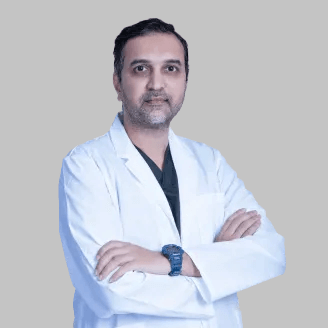-
Doctors
-
Specialities & Treatments
Centre of Excellence
Specialties
Treatments and Procedures
Hospitals & Directions HyderabadCARE Hospitals, Banjara Hills CARE Outpatient Centre, Banjara Hills CARE Hospitals, HITEC City CARE Hospitals, Nampally Gurunanak CARE Hospitals, Musheerabad CARE Hospitals Outpatient Centre, HITEC City CARE Hospitals, Malakpet
HyderabadCARE Hospitals, Banjara Hills CARE Outpatient Centre, Banjara Hills CARE Hospitals, HITEC City CARE Hospitals, Nampally Gurunanak CARE Hospitals, Musheerabad CARE Hospitals Outpatient Centre, HITEC City CARE Hospitals, Malakpet Raipur
Raipur
 Bhubaneswar
Bhubaneswar Visakhapatnam
Visakhapatnam
 Nagpur
Nagpur
 Indore
Indore
 Chh. Sambhajinagar
Chh. SambhajinagarClinics & Medical Centers
Book an AppointmentContact Us
Online Lab Reports
Book an Appointment
Consult Super-Specialist Doctors at CARE Hospitals

Impaired Hearing
Impaired Hearing
Hearing loss Treatment In Hyderabad
Hearing impairment, deafness, or hearing loss refers to the complete or partial inability to hear sounds. Symptoms of hearing impairment or deafness in a person may be mild, moderate, severe or profound. A person with mild hearing inability may have trouble understanding regular speech, especially if there is a lot of noise around. People with severe deafness rely on lipreading entirely to be able to communicate with others. Profoundly deaf people are totally reliant on lipreading or sign language to communicate with others. So, CARE Hospitals provides hearing loss treatment in Hyderabad with well- qualified doctors and suggest the best possible treatment for your condition.
Difference between hearing loss, deafness, and profound deafness
It is important to know the difference between hearing loss, deafness, and profound deafness to understand the severity of impairment suffered.
-
Hearing loss is the reduced ability in people to be able to hear sounds audible to other people with normal hearing.
-
Deafness is the condition when people cannot hear a normal speech by hearing despite amplifying sound.
-
Profound deafness is the complete lack of hearing ability and is totally deaf to a large spectrum of sounds.
The severity of hearing impairment is categorised by how loud a volume of sound needs to be set before a person can detect the sound.
CARE Hospitals offer a wide spectrum of diagnosis and treatment services for patients with different medical needs. Our multidisciplinary staff consisting of ENT medical and surgical specialists are well experienced and dedicated to providing the best services to the patients for complete treatment and post-operative recovery.
Types of Hearing Loss
There are four types of hearing loss:
- Conductive Hearing Loss: It occurs when there are issues in the outer or middle ear that prevent sound from reaching the inner ear. Treatments include surgery and various hearing technologies like bone conduction hearing aids, bone anchored hearing devices, and middle ear implants.
- Sensorineural Hearing Loss: Sensorineural hearing loss occurs when there is damage to the cochlea or auditory nerve, leading to permanent impairment in transmitting sound information to the brain. This condition is managed with hearing aids or cochlear implants, depending on the severity.
- Mixed Hearing Loss: Mixed hearing loss involves both conductive and sensorineural components. While the sensorineural part is permanent, the conductive part can often be treated with medication or surgery. Hearing aids are then used to address the sensorineural aspect.
- Central Auditory Processing Disorders: Central auditory processing disorders occur due to difficulties in the brain's ability to interpret sound information, affecting tasks like understanding speech and locating sounds.
Causes
Some of the circumstances which can cause deafness are given as follows:
-
Mumps
-
Chickenpox
-
Cytomegalovirus
-
Syphilis
-
Sickle cell disease
-
Lyme disease
-
Diabetes
-
Hypothyroidism
-
Some types of cancer
-
Exposure to passive smoking
-
Treatment of tuberculosis, streptomycin (it is believed to be a key risk factor)
The inner ear in humans is the home of some of the most delicate bones in the body, damage to these bones can result in a spectrum of hearing loss and deafness ranges.
Symptoms
The symptoms of any type of hearing impairment depend on the underlying cause. Some people are dead congenitally while some others may become deaf due to trauma, injury, or accidents. Sometimes, deafness may be progressive. In fact, some medical conditions may have hearing loss as a symptom, such as a stroke or tinnitus.
Complications
Experiencing hearing loss can lead to feelings of isolation from your surroundings. It may result in frustration, irritability, or anger. Those with significant hearing loss might also face anxiety or depression. For children, hearing loss can hinder academic performance, leading to lower grades. Also, research indicates a connection between hearing loss in older adults and an increased risk of dementia.
Diagnosis
ENT specialists at CARE Hospitals take immense care to provide proper diagnosis of the type and level of hearing loss in patients of all ages, ranging from infants to the older population. The patient may be asked questions about medical history or history of trauma, injury or accident involving the ears, or the beginning of hearing problems or pain in the ears. Physical examination of the ears may also be done to detect one or more of the following conditions:
-
Blockage caused by foreign elements
-
Collapsed eardrum
-
Excessive accumulation of earwax
-
Infection in the ear canal
-
Infection in the middle ear in case a bulge is seen in the eardrum
-
Cholesteatoma
-
Fluid in the ear canal
-
Hole in the eardrum
The general screening test may also be performed by covering one ear and asking the patient to describe how well they can hear words. Other methods of screening include the use of a tuning fork, an audiometer test, and a bone oscillator test.
Prevention
Some types of hearing loss can't be avoided, like age-related hearing loss. However, noise is the leading cause of hearing loss, and you can take steps to prevent it. Here’s how:
- Use hearing protection: Wear earplugs or earmuffs in loud places like concerts or when using loud machines.
- Lower the volume: When using headphones or earbuds, keep the volume low enough to hear people talking. Aim to keep it under 80% volume for no more than 90 minutes a day.
- Avoid inserting objects in your ears: Don’t use cotton swabs or hairpins, as they can get stuck or damage your eardrum.
- Don’t smoke: Smoking can affect blood flow and your hearing.
- Exercise regularly: Staying active can help prevent health issues that might lead to hearing problems, such as diabetes and high blood pressure.
- Manage chronic conditions: Keep any ongoing health issues under control to avoid further hearing damage.
Risk Factors Causing Hearing Loss
- Aging: As individuals reach 55 years and older, there is a natural deterioration of the delicate structures within the inner ear.
- Loud Noise: Prolonged exposure to loud noises over time, or sudden exposure to very loud sounds, can harm the cells in the inner ear.
- Genetics: Some individuals may have a genetic predisposition to hearing loss due to aging or damage caused by loud sounds.
- Occupational Noise: Regular exposure to loud noises in workplaces can cause damage to the inner ear over time.
- Recreational Noise: Exposure to extremely loud sounds such as loud music at high volumes can lead to immediate and permanent hearing loss.
- Medications: Certain medications like antibiotics and chemotherapy drugs have the potential to cause damage to the inner ear.
- Illnesses: Conditions involving high fever or diseases can result in damage to the cochlea, which is part of the inner ear.
Treatments for hearing loss
Treatment of hearing impairment depends on the cause and severity of hearing loss. They include:
- Hearing aid: A hearing aid is a wearable device that assists in hearing. There are several types of hearing aids custom designed for patients with different levels of hearing loss. Therefore, hearing aids come in a wide range of sizes, circuits, and power levels. Hearing aids do not cure deafness but aid in hearing sounds better by amplifying the sounds entering the ears of the wearer, thus, the patient can hear more clearly. It is not suitable for patients with profound deafness. Our specialists take special care to make sure the device fits well and can be adjusted according to the auditory needs of the patient.
- Cochlear implants: A patient with a functional eardrum and middle ear, a cochlear implant may be beneficial for hearing impairment. A cochlear implant is a thin electrode device that is inserted into the cochlea and stimulates electricity through a tiny microprocessor placed under the skin behind the ear. A cochlear implant is inserted to help patients with hearing impairment caused by air cell damage in the cochlea. These implants also aid speech comprehension.
Alternatives to the Treatment
Here are some alternatives to the treatment for impaired hearing:
- Assistive Listening Devices (ALDs): These include devices like personal amplifiers, FM systems, and loop systems that can help amplify sound in specific situations, such as conversations or watching television.
- Communication Strategies: Learning strategies such as lip reading, using visual cues, and practicing effective communication techniques can enhance understanding in everyday situations.
- Speech Therapy: For individuals with hearing loss, speech therapy can help improve speech and language skills, as well as teach coping strategies for communication challenges.
- Auditory Training: Programs and exercises designed to help individuals improve their ability to interpret speech sounds and understand spoken language.
- Cochlear Implant Rehabilitation: For those who have received cochlear implants, rehabilitation programs are available to help adapt to hearing with the implant and maximize its benefits.
- Tinnitus Management: For individuals experiencing tinnitus (ringing or buzzing in the ears), various therapies such as sound therapy, counseling, and relaxation techniques can provide relief and improve quality of life.
Removable Hearing Aids
Removable hearing aids are devices designed to amplify sounds, helping your inner ear hear better. They come in two main types: analog and digital.
- Analog Hearing Aids: These amplify sound in a continuous way. They can be adjusted manually to fit your needs, but they might not filter out background noise as effectively.
- Digital Hearing Aids: These use advanced technology to convert sound into digital signals. They can be programmed to focus on certain sounds and reduce background noise, making it easier for you to hear conversations.
How to prepare for the appointment?
If you think you have hearing loss, it's important to contact your healthcare provider. They may refer you to an audiologist, a specialist in hearing.
To prepare for your appointment, consider the following:
What You Can Do:
- Note Your Symptoms: Write down what you've experienced and how long you've had these symptoms. Is the hearing loss in one ear or both? You might want to ask friends or family if they've noticed any changes.
- Gather Medical History: Record any past ear issues, such as infections, injuries, or surgeries. List any medications, vitamins, or supplements you take, along with their doses.
- Describe Your Job History: Mention any jobs where you were exposed to loud noises, even if they were long ago.
- Bring a Support Person: Having a friend or family member with you can help you remember the information you receive.
- Prepare Questions: Write down questions for your healthcare provider. Here are some examples:
- What could be causing my symptoms?
- Are there other factors that might be affecting my hearing?
- What tests will I need?
- Should I stop taking any of my current medications?
- Do I need to see a specialist?
What to Expect from Your Doctor:
Your healthcare provider may ask you questions such as:
- How would you describe your symptoms? Do either of your ears hurt or leak fluid?
- Did your symptoms appear suddenly?
- Do you hear ringing, roaring, or hissing in your ears?
- Are you experiencing dizziness or balance issues?
- Have you had any ear infections, injuries, or surgeries in the past?
Our Doctors
-

Dr. Shailendra Ohri
MBBS, MS (ENT)
ENT
View More -

Dr. Rishi Ajay Khanna
MBBS, MS (ENT Head & Neck Surgery)
ENT
View More -
.webp)
Dr. Abhishek Malviya
MBBS, DLO, DNB
ENT
View More -

Dr. Chaitanya Pentapati
MBBS, MS (OTO, RHINO - LARYNGOLOGY)
ENT
View More -

Dr. Debabrata Panigrahi
MBBS, MS (E.N.T)
ENT
View More -

Dr. Hakeem
MBBS, DLO
ENT
View More -

Dr. M. A. Amjad Khan
MBBS, MS (ENT, Head & Neck Surgeon)
ENT
View More -

Dr. MD Kareemullah Khan
MBBS, MS (ENT), MRCS (England)
ENT
View More -

Dr. N Vishnu Swaroop Reddy
MBBS, MS ( E.N.T.), FRCS (Edinburgh), FRCS (Ireland), DLORCS (England)
ENT
View More -

Dr. Prateek Raj Betham
MBBS, MS (ENT), FHNSO
ENT
View More -

Dr. Ram Sunder Sagar
MBBS, DLO
ENT
View More -

Dr. Ramesh Rohiwal
MBBS, MS (ENT), PGDHHCM
ENT
View More -

Dr. Ranbeer Singh
MBBS, DLO (DNB)
ENT
View More -

Dr. Shruthi Reddy
MBBS, DNB (ENT)
ENT
View More -

Dr. Surbhi Chopra
MBBS, MS
ENT
View More -

Dr. Vikrant Vaze
MD - Physician, DNB - ENT
ENT
View More
Frequently Asked Questions
Couldn’t find what you were looking for?
Need any help? Get a Call Back.

Still Have a Question?

